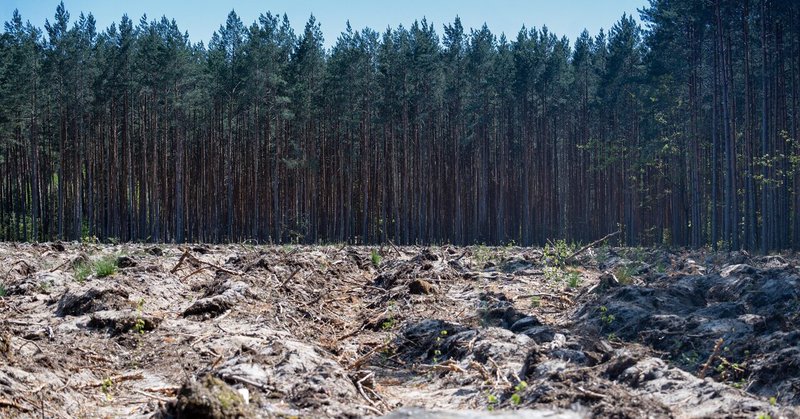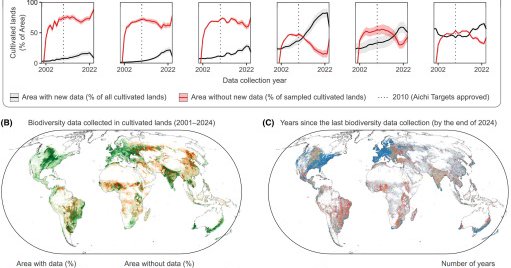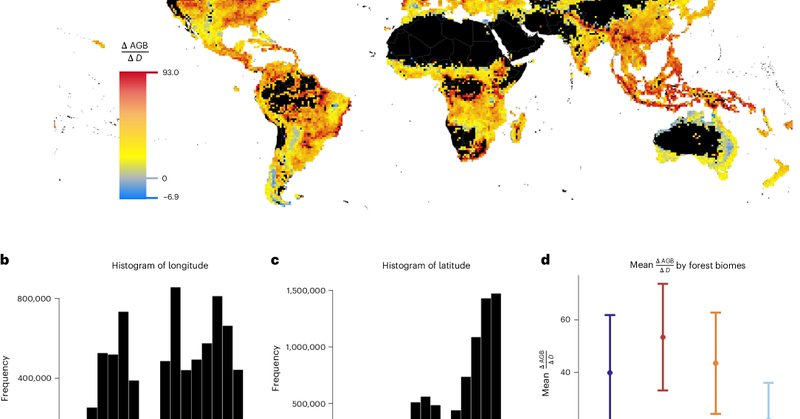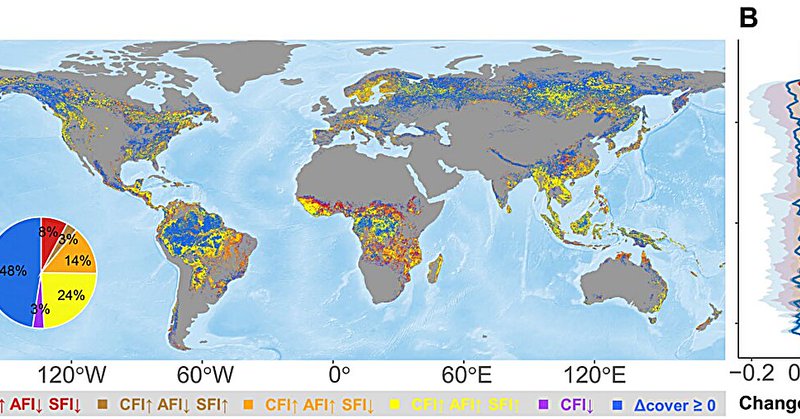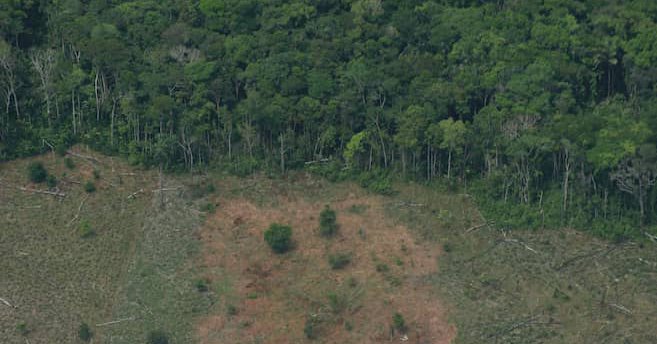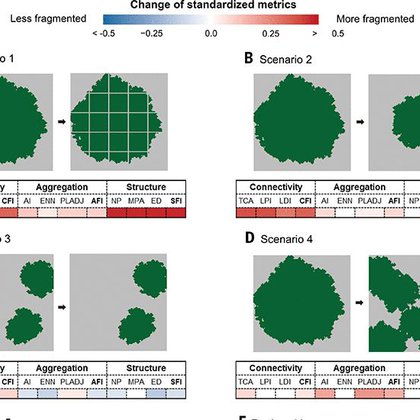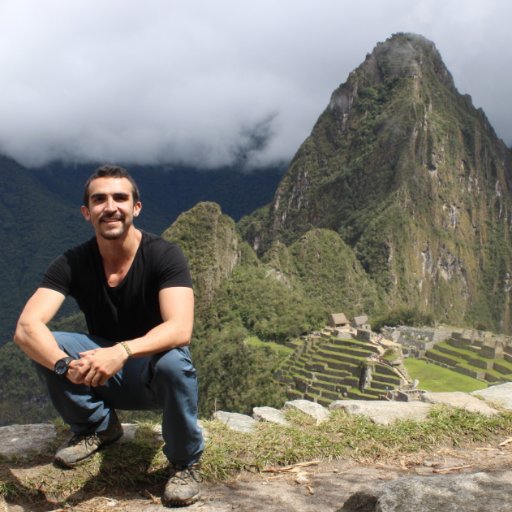
Pablo Jose Negret
@Pablo_Negret
Followers
1K
Following
3K
Media
189
Statuses
2K
Ecology and Conservation scientist
Joined August 2014
Mi tesis doctoral “Desarrollo, conflicto armado y conservación: mejorando la efectividad de las decisiones de conservación en puntos críticos de conflicto utilizando a Colombia como caso de estudio.” esta disponible aqui; https://t.co/wAvtxQ8c3l
55
191
2K
Queensland's forests are still being bulldozed—and new parks alone won't save them https://t.co/asHvF051BT via @physorg_com
phys.org
The Queensland government celebrated the creation of new national parks this year, with Premier David Crisafulli saying it is time to "get serious" and be "ambitious" in protecting nature.
0
4
5
Cultivated lands: blind spots in global biodiversity data: Trends in Ecology & Evolution
cell.com
Biodiversity loss due to agricultural expansion and intensification is well documented. Accordingly, the Global Biodiversity Framework calls for transforming agroecosystems towards sustainable...
1
3
5
Our recent work led by Yantong showed that IUCN Red List underestimates national conservation status of transboundary species, highlighting the critical importance of developing national red lists for understudied taxa in developing countries. https://t.co/t3Xm4XRU1L
0
13
42
I think that endnote etc. are dead I just asked ChatGPT to change references in a proposal from APA style (last names, year) to Science style (numbers) and it did it very well... wow.... People also use reference software to keep track of what they read w/notes, but still....
1
2
12
Our new papers show that over half of the world’s forests have become more fragmented since 2000. This weakens carbon sinks: forest edges store 16% less biomass, equal to 36 Pg carbon lost globally @ScienceMagazine: https://t.co/XhA2l101Eb
@NatureEcoEvo:
nature.com
Nature Ecology & Evolution - Across 97% of forest area from eight million sampled forested locations worldwide, the density of aboveground biomass is lower near forest edges than in forest...
0
10
17
#New analysis shows over half of the world’s forests, especially in the tropics, have become more fragmented in the past 20 years, threatening biodiversity and carbon storage. @sciencemagazine
https://t.co/8puR43WtXg
phys.org
Deforestation is a well-known issue affecting biodiversity and carbon storage, but the fragmentation of forests is also a driving factor in the reduction of the world's biodiversity and carbon-stor...
2
22
39
More than half of the world’s forests have become more fragmented since 2000. Our new @ScienceMagazine study is featured in @mongabay — showing the risks of fragmentation and the power of protection. 📰Mongabay: https://t.co/68WoVJYNBl 📄Paper:
news.mongabay.com
“If you can imagine walking into a huge, 1,000-kilometer square [386-square-mile] tropical forest … it’s moist and damp [with] rich soil and an overstory. You imagine walking into a 10-meter [33-fo...
2
14
25
Our new study in @ScienceMagazine shows that over half of forests have become more fragmented since 2000, threatening biodiversity and climate. Brilliantly led by @YibiaoZ as part of his PhD — and a huge team effort from @CrowtherLab. 👏 https://t.co/7d7bwcbupG
5
17
50
Un nuevo estudio estimó la fragmentación que han sufrido los bosques del mundo en los últimos 20 años. ¿Qué encontró sobre Colombia? 🔗👇
elespectador.com
Un nuevo estudio estimó la fragmentación que han sufrido los bosques del mundo en los últimos 20 años. ¿Qué encontró sobre Colombia?
0
3
3
Out today in @ScienceMagazine: Over half of the world’s forests have become more fragmented since 2000, threatening biodiversity and climate stability. https://t.co/XhA2l0ZtOD
#Biodiversity #Conservation #ClimateCrisis
@YibiaoZ @ConstiZo @TWCrowther
0
18
25
Que es la fragmentación, que implicaciones tiene para la conservación de la biodiversidad y como a avanzado en los bosques de Colombia? Lea mi columna de hoy en @elespectador
https://t.co/FEMHlDk3IB
lnkd.in
This link will take you to a page that’s not on LinkedIn
0
0
1
6/6 🌍 Policy takeaway: To reach global biodiversity goals (e.g., the Kunming-Montreal “30x30” framework) we must measure not only forest area but also connectivity To better understand biodiversity impacts and guide conservation It is key to include connectivity focused metrics
0
0
0
5/6 🛡️ The good news: Protected areas work. Tropical protected areas had up to 82% less fragmentation than unprotected forests. But effectiveness outside the tropics was mixed — some “protected” forests still allow logging.
1
0
0
4/6 🚜 Main drivers: Shifting agriculture (37%) Forestry (34%) Wildfires (14%) Commodity-driven deforestation (14%) In the tropics, shifting agriculture alone caused 61% of fragmentation.
1
0
0
3/6 📊 The numbers: 51–67% of forests globally became more fragmented. In the tropics: 58–80%. By comparison, structure-based methods suggested only 30–35%. Fragmentation is far worse than previously recognized.
1
0
0
2/6 Earlier assessments suggested fragmentation was declining. But those relied on patch size & number, overlooking ecological connectivity. By applying connectivity- & aggregation-focused metrics, we found a very different picture.
1
0
0
1/6 Our new research, published today in Science, shows that more than half of the world’s forests became increasingly fragmented between 2000 and 2020 — with serious consequences for biodiversity and climate. 🌍🌱 🔗
science.org
Habitat fragmentation, in which contiguous forests are broken into smaller, isolated patches, threatens biodiversity by disrupting species movement, shrinking populations, and altering ecosystem...
1
2
3
Huge thanks to all co-authors for making this possible, and a special shout-out to @YibiaoZ, who led this research as part of his PhD thesis. 👏 @ConstiZo @TWCrowther @haozhi_ma @LidongMo @LalasiaM @Pablo_Negret @ThLauber @Zhaofei2022 @domrebindaine
0
6
6
More than half of the world’s forests have become more fragmented since 2000. Out today in @ScienceMagazine: https://t.co/XhA2l0ZtOD
#Biodiversity #Conservation #ClimateCrisis
science.org
Habitat fragmentation, in which contiguous forests are broken into smaller, isolated patches, threatens biodiversity by disrupting species movement, shrinking populations, and altering ecosystem...
1
10
17
(7/7) Many thanks to @julie_gwen for helping with the construct of the course and to Madlaina Michelotti for the support developing it.
0
0
1


